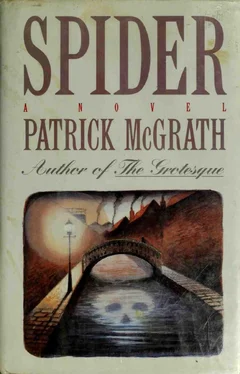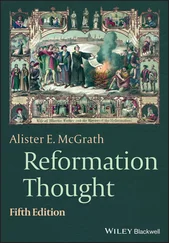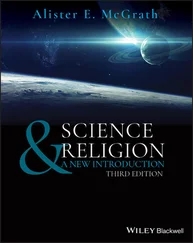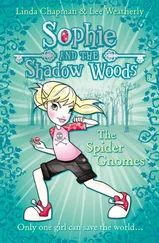I haven’t yet been back to Kitchener Street; I feel apprehensive about crossing the canal and seeing again those blackened bricks, imbued as they are in my memory with the sounds and smells of the tragedy that occurred there. One day I must do it, I know, but not yet, not yet. I did, however, climb the hill to Omdurman Close last week, and even stepped out onto the bridge over the railway lines, clutching tight to the railing. From a point exactly halfway across the bridge—I dared not look down at the meshwork of tracklines far below—I saw that the allotments were still there, beyond the embankment on the far side, and still apparently in use, for the smoke of a gardener’s bonfire was sweeping into the turbulent air of that windy October afternoon. But barely had I decided to go further, and see what had become of my father’s garden, and of the shed he’d built at the bottom of it, than a goods train went wildly shrieking beneath me, and in a sort of shambling panic I scampered back the way I’d come and was a few moments later clinging limply to a lamppost with my heart leaping and racing in my chest and my ears ringing with the sound of the train, a terrible sound that for a few seconds turned into a howl of mockery from some tribe of invisible imps, so it seemed! How easily I am thrown into turmoil, these days.
I’m something of a gardener myself, you see. In fact gardening is probably the only good thing that came of the years I spent abroad, learning how to grow vegetables, though I never took to it with the same passion as my father. For him that narrow strip of soil was not merely a source of fresh vegetables, it was, I believe, a sort of sanctuary, a sort of spiritual haven. Having crossed the bridge he would wobble down the narrow path beside the embankment, past the allotments of his fellow gardeners, working men like himself who would already be hoeing, perhaps, or digging, or perhaps simply pacing up and down between the rows with their hands clasped behind their backs and their brows knit as they contemplated their potatoes or their runner beans or their carrots or cabbages or peas. “Morning Horace,” they would murmur, as my father slowly steered his bicycle along the path. Silent and abstracted these men may have been, manifestly anxious about slow growth, or blight, or wilt, or a damp summer and marauding crows, but these men were at peace, as I have been at peace in a garden, they were happy.
The first hour of the Sunday morning was when my father reflected on the state of things in the garden, and it was an hour from which he derived a measure of quiet joy incomprehensible to any but a fellow gardener. That hour, in the crisp, early air, with the dew still wet on the cabbage leaves, was in a way what he worked for, for he experienced then a sense of fulfilment that I don’t believe he found anywhere else in his narrow, constricted existence. He inspected, he pondered, he poked at the soil with the toe of a boot, he squatted on his hams to examine this plant or that, laid a veined and tender vegetable leaf upon the calloused skin of his palm, and peered at it through his spectacles. Then after a while he would go to his shed, a trim, square structure knocked together from waste lumber and tar paper, and there, in the cobwebby gloom, he would hang up his jacket and fetch out what tools he needed, and the day’s work began. This is the barest sketch of my father’s allotment (I shall show you more of it in due course), but it was by means of this thin strip of soil and its shed that he was able to carve out within the larger frame of his life a compartment in which to enjoy autonomy and fellowship; and it was this that made existence tolerable for him, and for others like him. In a very real sense the allotment was the spiritual core and flavor of a life that was otherwise loveless, monotonous, and gray.
Ihaven’t even told you my name yet! It’s Dennis, but my mother always called me Spider. I am a baggy, threadbare sort of a customer, really—my clothes have always seemed to flap about me like sailcloth, like sheets and shrouds—I catch a glimpse of them sometimes as I hobble through these empty streets, and they always look vacant, untenanted, the way the flannel flaps and hollows about me, as though I were nothing and the clothes were clinging merely to an idea of a man, the man himself being elsewhere, naked. These feelings disappear when I reach my bench, for there I am anchored, I have a wall behind me and water in front of me, and as long as I don’t look at the gasworks all is well. But I had a bit of a shock yesterday, for I discovered that nothing fit me anymore. I noticed it first when I got up from the bench: my trousers barely reached the tops of my ankles, and from the ends of my sleeves my wrists were poking out to an absurd length, like sticks, before flowering suddenly into these long floppy hands of mine. When I arrived back at the house everything seemed to have returned to normal, and it occurred to me that the problem might be with my body rather than my clothes? Of course I wouldn’t think of speaking to Mrs. Wilkinson about any of this, she has already made her views clear on the subject: she has forbidden me to wear more than one of any article of clothing at any one time, no more than one pair of trousers, one shirt, one jersey, and so on, though naturally I defy her on this as I like to wear as many of my clothes as I can, I find it reassuring, and since returning from Canada reassurance is something I am simply not getting enough of Probably the whole thing was just some sort of perceptual error, I have occasionally been troubled this way in the past.
I am a much taller man than my father was, but in other respects I resemble him. He was wiry and shortsighted; he wore round, horn-rimmed spectacles that made him appear owlish. His eyes had a deceptively mild, watery sort of look to them, and when he took his spectacles off you realized what a startlingly pale-blue color they were. But I’ve seen those eyes of his fire up with anger, and when that happened there was nothing mild and watery about him at all, and as often as not I’d be taken down the coal cellar and feel the back of his belt. Not that he’d let anyone else ever see his anger, he was much too careful for that—but my mother and myself, we saw it, he had no other outlet for it, we were the only people in the world weaker than he was. I remember my mother used to say, “Run down the Dog, Spider, and tell your father his supper’s on the table,” and that’s when I knew I’d see that furious pale light come up. The Dog was the pub on the corner of Kitchener Street, the Dog and Beggar. It was not a big pub; there were four rooms, the public bar, the saloon bar, and two small snugs where private conversation could be had, each room separated from the others by a wooden screen inset with panels of frosted glass. My father drank in the public bar, and I can still recall pushing open the door and being immediately assailed by a welter of sounds and smells, men’s talk, their barks of laughter, thick smoke, beer, sawdust on the bare boards, and in the winter a small coal fire burning in the grate. Above the mantelpiece, I remember, was a mirror with a black toucan on it and the words guinness is good for you. I couldn’t read the first word, I only knew that something was good for you. There wasn’t anything good for me in the public bar of the Dog and Beggar: I’d see him at the bar, his back bent, leaning with his elbows on the counter and one boot up on the brass rail that ran the length of it at ankle height; someone would say, “Here’s Horace’s boy,” or, “Here’s your boy, Horace,” and I’d see him turn toward me, a cigarette hanging from his lips, and in his eyes there’d be only that cold loathing that came of being reminded, again, of the fact of his family and the house to which he must return from the careless sanctuary of the public bar. I’d blurt out my message, my little voice piping like a tin whistle among those shuffling, grunting men, those cattle at their beer, and he would tell me to go on back to the house, he’d be along shortly. No one would know, only I, only I, how intense, how venomous, was the hatred he felt toward me at that moment, and I’d hurry away as quick as I could. I was never able to tell my mother how much I disliked going into the Dog and delivering her message, for my father disguised his feelings so effectively she would have laughed to hear me explain what was really going on.
Читать дальше












